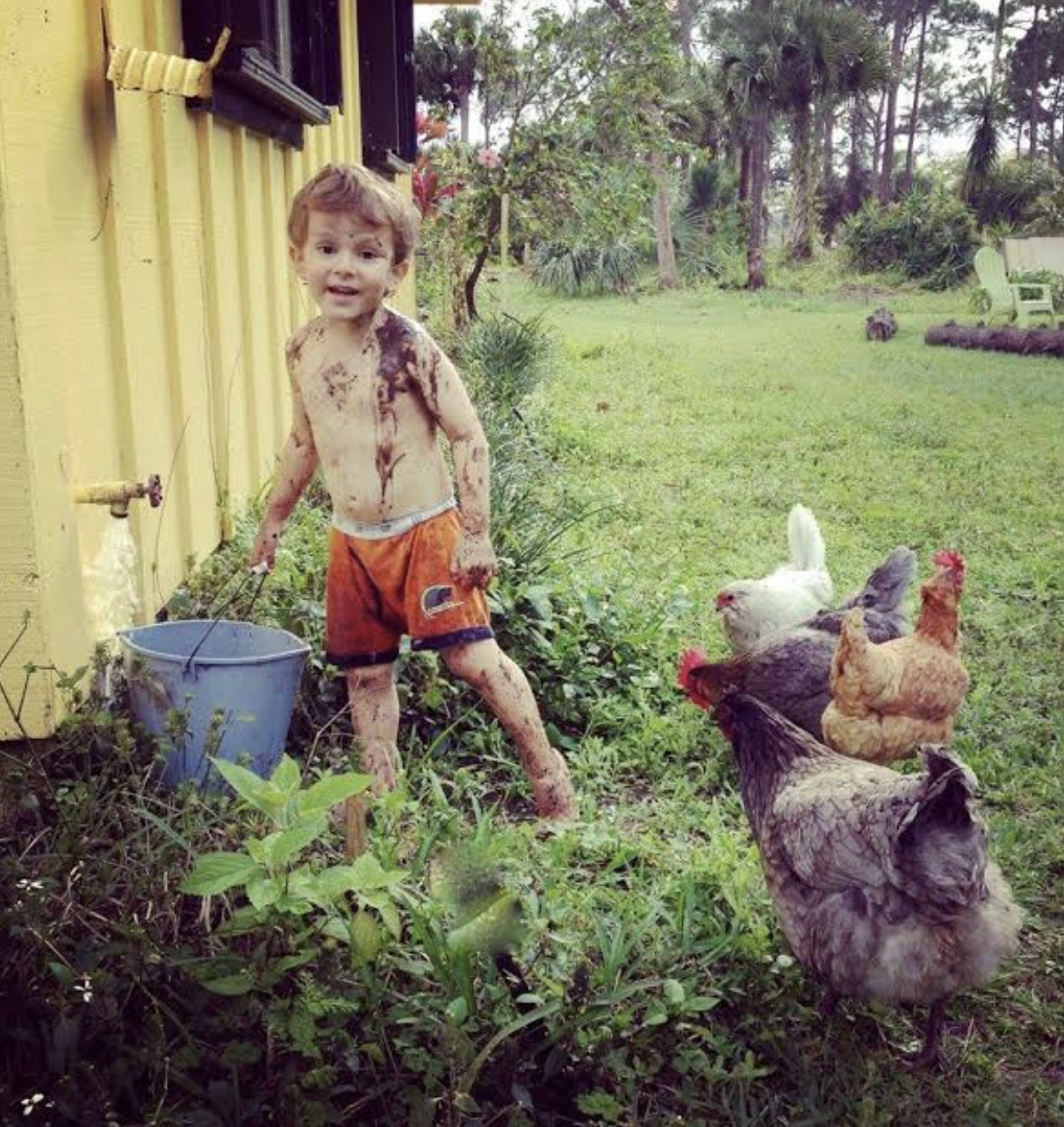Mudpies as Soul Food
Photo by Elsie Iudicello
Photo by Elsie Iudicello
Photo by Lesli Richards
“I like having time to be wild and messy and dirty and be someplace else in my mind. Because then eventually I want to come back home where I belong. Where I can be clean and warm and safe and loved and feel peace in my heart. After I have felt all those things for a while then I’m ready to be messy and wild again. That’s the kind of circle I love for growing up. ”
There is something about mud that is strangely satisfying to children. Mud is a substance that has survived the test of time like few other man-made playthings. I remember once when I was a child, I told my godmother that I had nothing to do. She looked at me and said “Have you ever made mud pies?” She took me out to the wooden circle bench around the big sprawling oak tree, and set up a makeshift kitchen under the shady branches. With sun peeking through on our work, we mixed and poured and giggled, using old pie tins, pots and pans and wooden spoons. When the day was done, I do believe that my dear old godmother was as dirty as I was. She had enjoyed reliving her childhood, remembering making mud pies along with her best friend, my grandmother. To this day, I can recall the feeling of the cool mud, its musty smell, and the strange stiffness on my sun dried skin. Anthony Esolen describes memories of this type of deep play as one of the only things that an old man can look back on without regret, and with complete satisfaction. I agree.
Fast forward forty years, and I watch my six-year-old discover several large mud puddles on our driveway. She is bent over them, in a tutu and sparkly boots…carefully scooping the mud into Inca like structures in the middle of the water. She has no idea I am watching her, so immersed in deep imaginary play and sensory satisfaction. Such a strange elemental play thing is the earth beneath our feet. It is a marvelous gift that God gives us to entertain our children with. I love to give children natural God-made materials to play with, because scripture tells us that he communicates his invisible attributes to us through the things he has made. I think our children sense this deep in their souls.
It’s hard though, living in our screen riddled hand sanitized world, to remember that mud is so good for us in so many ways. Playing with mud offers a perfectly balanced sensory experience. It inspires our creativity and helps us learn to problem solve and take risks. It provides excellent sensory feedback, which results in an integrated, calm child who is ready to take on challenges. This type of sensory free play, with no rulebooks, actually changes the connections of the neurons in your frontal cortex. It may look messy, but there is some serious construction work going on inside those little brains as they get elbows deep in mud. And germ-a-phobic mothers, take heart. Studies have shown that children who grow up on farms and play in dirt regularly have less incidents of asthma, allergies and are least likely to have auto immune disorders.
This week, as our weather starts to warm up, mix your child up a big batch of the good stuff. Let him have some old pots and pans and wooden spoons. Get out there with him and enjoy the feeling of the sun on your back. And someday, he’ll show your grandchildren how to make mud pies.
Activity to use from A Year of Playing Skillfully by Kathy Lee and Lesli Richards
Muddy Buggy Creek: Fill the bottom of a sensory bin with dirt.
Next, bury some plastic bugs and worms in the dirt.
Fill the bin with water, covering the dirt completely.
Invite your learner to dig for bugs. Hopefully they will be inspired to create a mud pie or two!
“Every child should have mud pies, grasshoppers, water bugs, tadpoles, frogs, mud turtles, elderberries, wild strawberries, acorns, chestnuts, trees to climb. Brooks to wade, water lilies, woodchucks, bats, bees, butterflies, various animals to pet, hayfields, pine-cones, rocks to roll, sand, snakes, huckleberries and hornets; and any child who has been deprived of these has been deprived of the best part of education.
”



